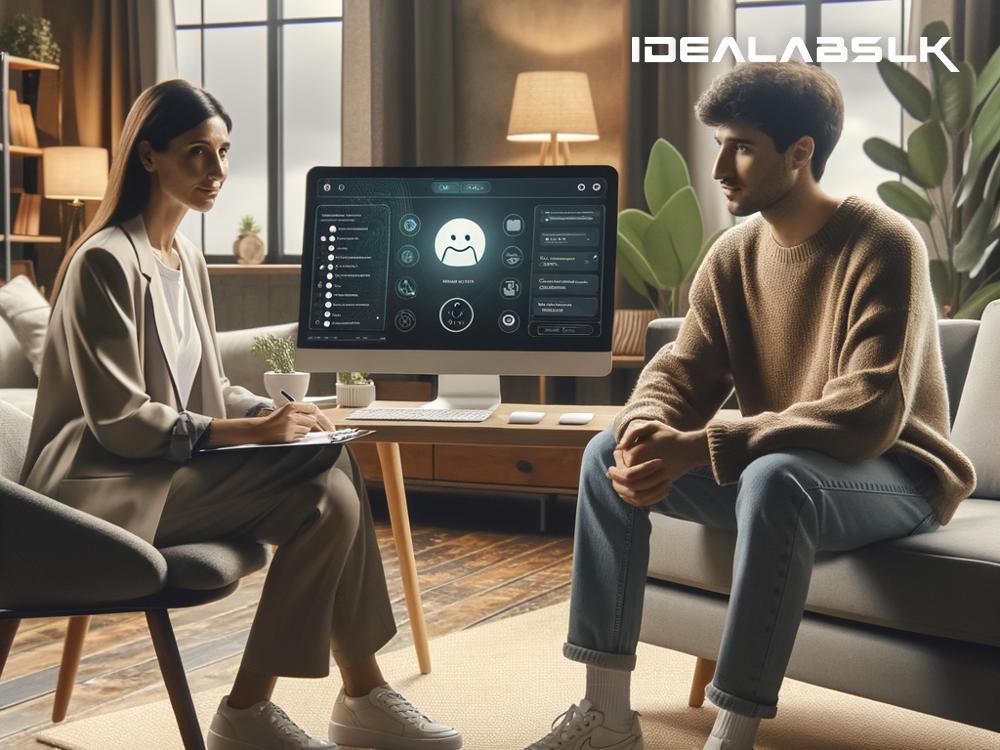The Role of AI in Mental Health Treatment: How Technology is Changing Therapy and Support
In recent years, there's been a buzz around the words Artificial Intelligence, or AI, and its transformative powers across various fields. Among these, one of the most promising and perhaps surprising areas where AI is making a significant impact is in the realm of mental health treatment. The infiltration of technology into our daily lives has now reached a point where it's beginning to change the way therapy and mental health support are delivered, making it more accessible, personalized, and sometimes, even more efficient. Let's dive into how AI is revolutionizing this crucial aspect of healthcare.
Breaking Down Barriers
One of the most immediate ways AI is changing mental health support is by breaking down barriers to access. Traditional therapy requires finding a compatible therapist, scheduling, and often traveling to appointments - hurdles that can be daunting for many. AI-driven platforms and apps, on the other hand, can offer support at any time and from any place. This convenience means that help is available for many who might otherwise struggle to receive it, whether due to time constraints, geographical remoteness, or the anxiety of seeking help in person.
Always There When You Need It
AI doesn't sleep, take holidays, or need breaks. Because of this, AI-powered mental health tools can provide continuous support. Chatbots designed to offer coping strategies, relaxation techniques, or simply an empathetic "ear" have become increasingly popular. These bots use natural language processing - a form of AI that understands and responds to human language - to interact in a way that can sometimes mimic human therapists. For individuals experiencing insomnia, loneliness, or sudden panic attacks outside of regular therapy hours, this 24/7 availability can be a game-changer.
Making Therapy Personal
AI is also incredibly good at sifting through vast amounts of data and identifying patterns, a skill that's being used to tailor mental health care to the individual. By analyzing data from therapy sessions, patient histories, and even daily activities or moods tracked by users, AI can help therapists understand their clients on a deeper level. This insight can lead to more personalized therapy that targets the individual's unique challenges more effectively, potentially leading to better outcomes.
A Helping Hand for Therapists
While there's understandable concern about AI replacing human jobs, in the field of mental health, it's more about AI assisting rather than replacing. AI can manage administrative tasks, organize and analyze patient notes, and even help therapists stay updated with the latest research and treatment methods. By offloading these tasks, therapists can focus more on their clients, enriching the human connection that is at the heart of effective therapy.
Training and Simulation
AI-driven simulations and virtual reality are beginning to play a role in training mental health professionals. Through realistic scenarios, these technologies can help budding therapists develop their skills, practice empathy, and learn to navigate complex patient interactions. This hands-on, immersive experience, powered by AI, is preparing the next generation of mental health professionals in ways that traditional education cannot.
Limitations and Concerns
Despite its potential, relying on AI for mental health treatment is not without its concerns. Privacy and security of sensitive data, the lack of human intuition and empathy in AI interactions, and the potential for misuse or misinterpretation of data are valid concerns that are continuously being addressed. Moreover, while AI can offer support and coping strategies, it's essential to remember that it cannot replace the depth of understanding and the healing relationship provided by a human therapist.
The Road Ahead
As we forge ahead, the integration of AI in mental health treatment holds great promise for making therapy and support more accessible, personalized, and efficient. By providing tools that can reach more people, offer immediate support, and enhance the quality of care through personalization and administrative support, AI is changing the landscape of mental health for the better. However, balancing technology and human touch, and addressing ethical concerns, will be the key to fully harnessing the power of AI in transforming mental health care. The journey of integrating AI into mental health treatment is just beginning, and the potential for positive change is immense.

